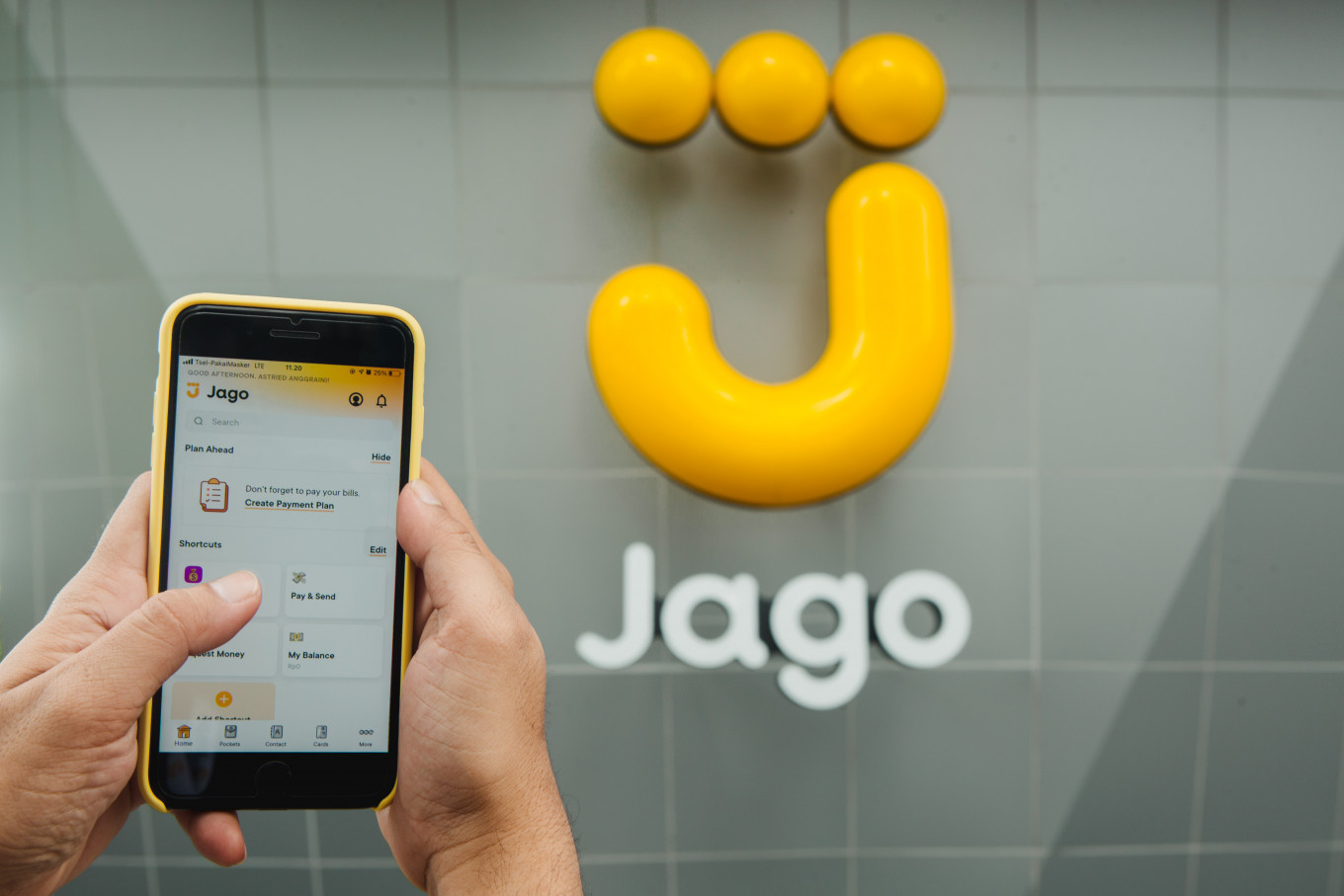Popular Reads
Top Results
Can't find what you're looking for?
View all search resultsPopular Reads
Top Results
Can't find what you're looking for?
View all search resultsAllo, Jago, Bank Neo Commerce wrap up H1 with strong growth
Three publicly listed digital banks post massive growth in loan disbursements and revenue as more Indonesians transact digitally.
Change text size
Gift Premium Articles
to Anyone
T
hree publicly listed digital banks wrapped up the first half of this year with massive growth in loan disbursements and revenue, as more Indonesians transact digitally.
Marking one of the biggest triumphs among digital banks in the first half of the year, CT Corp-backed Allo Bank saw a sevenfold increase of loan disbursement year on year (yoy).
During the same time period, GoTo-backed Bank Jago also saw a threefold increase yoy, while Akulaku-backed Bank Neo Commerce (BNC) booked an 84.2 percent increase yoy.
Bank Jago recorded Rp 641 billion (US$43.06 million) in net interest margin revenue, triple the first half of last year. BNC and Allo also managed a threefold increase to Rp 547 billion and Rp 217 billion, respectively.
Bank Jago attributed its high growth to cooperation with 34 entities such as fintech, multi finance and other digital financial institutions.
“We will continue to expand and deepen our collaboration with the financial ecosystem. This is our strategy to actively get to our customers,” Bank Jago chief executive Kharim Siregar said in a statement on July 21.
Read also: Major Indonesian banks do better than expected in H1
Meanwhile, BNC said the jump in its loan-disbursement growth was mostly supported by transactions via digital channels.
However, in line with the strong loan disbursement growth, digital banks also saw a hike in non-performing loans (NPLs). Jago’s NPL ratio increased 2.7 percent yoy, while BNC’s spiked by 2.14 percent yoy.
Allo, on the other hand, saw a decrease in its NPL ratio from 1.76 percent in the first half of last year to zero in the first half of this year.
Among the three, Allo Bank booked Rp 150.62 billion in net profit in the first six months of this year, almost a sixfold increase from last year. Meanwhile, Jago saw a net profit of Rp 28 billion, reversing a Rp 47 billion loss from last year.
BNC saw its net loss increase to Rp 611.4 billion during the first half of the year from Rp 132.86 billion in the same time period last year.
Among the three, BNC booked the highest jump in expenses with a threefold increase to Rp 1 trillion for the first six months of this year, followed by Bank Jago and Allo Bank with almost twofold increases to Rp 455 billion and Rp 105 billion, respectively.
BNC wrote in its statement on Sunday that the bank’s large increase in expenses was due to promotional costs, which rose 139 percent yoy to Rp 251.3 billion. Higher operational costs were the result of a ninefold growth in its users, to 18.5 million.
According to its financial statement, BNC operational costs labeled “general” increased by sevenfold to Rp 630 billion and its manpower costs were up by 86 percent to Rp 124 billion.
“In the past year, we have consistently added various digital financial services and features. These various services also contributed to a significant increase in our performance in the first half of 2022,” BNC chief executive Tjandra Gunawan said in a statement.
In regard to capital, BNC scored the lowest among the three digital banks, being valued at Rp 2.1 trillion. Bank Jago as well as Allo Bank were both worth Rp 8.27 trillion and Rp 6.27 trillion, respectively.
Meanwhile, the Financial Services Authority (OJK) has required banks to meet a Rp 3 trillion minimum capital by the end of this year or face consequences from regulators.
Read also: Executive Column: Digital banks urged to specialize
Nailul Huda, who heads the Center of Innovation and Digital Economy at the Institute for Development of Economics and Finance (Indef), told The Jakarta Post on Tuesday that digital banks would continue seeing positive growth in the future, on a par with the rapid shift to online transactions.
He said the key to sustainable digital bank growth was the availability of its digital ecosystem, adding that some banks may be unable to compete well due to an absence of this factor.
“The biggest challenge for digital banks remains how well they develop their ecosystem,” Nailul explained.










